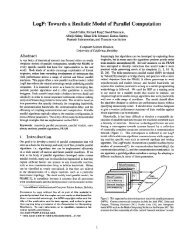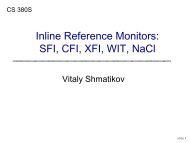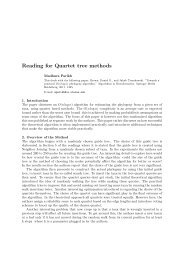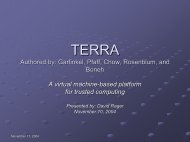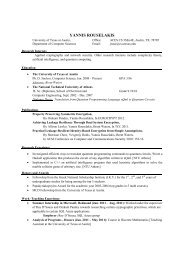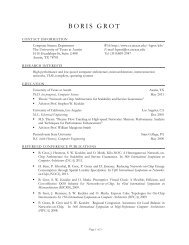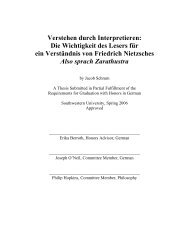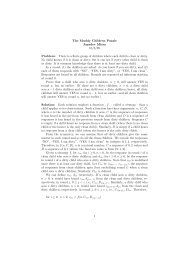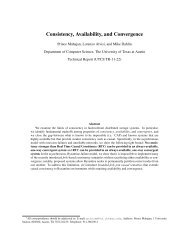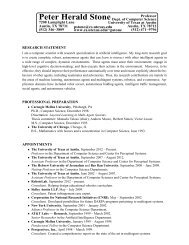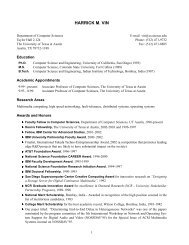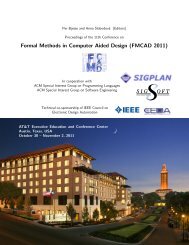A User's Guide to gringo, clasp, clingo, and iclingo
A User's Guide to gringo, clasp, clingo, and iclingo
A User's Guide to gringo, clasp, clingo, and iclingo
Create successful ePaper yourself
Turn your PDF publications into a flip-book with our unique Google optimized e-Paper software.
5.4.3 Lookback Options<br />
The following options have an effect only if lookback techniques are turned on, that is,<br />
option --no-lookback is not used.<br />
--no-lookback<br />
Disable all lookback techniques. This option is included mainly for comparison<br />
purposes, <strong>and</strong> its use is not generally recommended.<br />
--restarts,-r n1[,n2,n3]|no<br />
Choose <strong>and</strong> parameterize a restart policy. If a single argument n1 is provided,<br />
<strong>clasp</strong> restarts search from scratch after a number of conflicts determined by a<br />
universal sequence [38], where n1 constitutes the base unit. If two arguments<br />
n1,n2 are specified, <strong>clasp</strong> runs a geometric sequence [11], restarting every<br />
n1 ∗ n2 i conflicts, where i is the number of restarts performed so far. Given<br />
three arguments n1,n2,n3, <strong>clasp</strong> repeats geometric restart sequence n1∗n2 i<br />
when it reaches an outer limit n3 ∗ n2 j [5], where j counts how often the outer<br />
limit has been hit so far. Finally, restarts are disabled via argument no.<br />
--local-restarts<br />
Count conflicts locally [49] (rather than globally) for deciding when <strong>to</strong> restart.<br />
--bounded-restarts<br />
Perform bounded restarts in answer set enumeration [21].<br />
--reset-restarts<br />
Reset restart strategy whenever an answer set is found.<br />
--save-progress[=n]<br />
Use cached (rather than heuristic) decisions [45] if available. Cache decisions<br />
on backjumps > n.<br />
--shuffle,-s n1,n2<br />
Shuffle internal data structures after n1 restarts (n1 = 0 st<strong>and</strong>ing for no shuffling)<br />
<strong>and</strong> then reshuffle every n2 restarts (n2 = 0 st<strong>and</strong>ing for no reshuffling).<br />
--deletion,-d n1[,n2,n3]<br />
Limit the number of learnt constraints <strong>to</strong> min{(c/n1) ∗ n2 i , c ∗ n3}, where c is<br />
the initial number of constraints <strong>and</strong> i is the number of restarts performed so far.<br />
--reduce-on-restart<br />
Delete a portion of learnt constraints after every restart.<br />
--estimate<br />
Base the initial limit of learnt constraints on an estimate of the problem’s complexity.<br />
--strengthen=bin|tern|all|no<br />
Check binary (with argument bin), binary <strong>and</strong> ternary (with argument tern),<br />
or all (with argument all) antecedents for self-subsumption [10] in order <strong>to</strong><br />
strengthen a constraint <strong>to</strong> learn. Strengthening is disabled via argument no.<br />
--recursive-str<br />
Recursively apply strengthening, as proposed in [52].<br />
46



